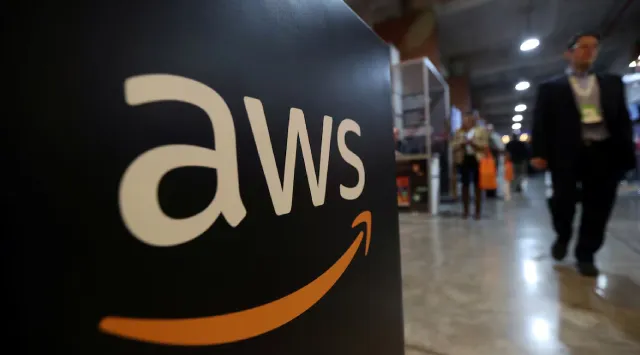Pune’s Strategic Position in AWS Job Markets

Pune has emerged as a powerful node for AWS-related hiring due to its deep integration into enterprise cloud strategies. As of late 2023 and into early 2024, job aggregator data indicates a 27% year-over-year increase in AWS-specific job postings in Pune, especially for roles in cloud deployment, architecture, and data operations. Companies such as Infosys, TCS, Cognizant, Accenture, and Tech Mahindra have used their Pune delivery centers to scale new AWS-based projects, particularly those involving migration from monolithic architectures to microservices and container-based deployments on Elastic Kubernetes Service (EKS).
Notably, Pune-based startups are actively adopting serverless-first architectures. This translates into a growing demand for engineers who understand AWS Lambda, API Gateway, DynamoDB and how to implement scalable backend environments. Additionally, Pune’s talent pool is increasingly being preferred by global enterprises setting up India-based AWS Centers of Excellence. These organizations often tap into the city’s technically literate graduate pool and provide in-house upskilling, indicating a market trend toward hiring trainable rather than already-certified candidates—making local training programs especially relevant.
This dynamic positions Pune as one of the few cities in India where AWS project work is not only outsourced but actually conceptualized and deployed, resulting in real-world opportunities for hands-on AWS involvement and post-training placements.
What Placement-Oriented AWS Training Really Means

AWS training built for placement goes beyond teaching you how to score well on the Solutions Architect Associate exam. While certification remains a valuable credential, alone it doesn’t translate into job-readiness. Placement-focused AWS training integrates core certification knowledge with applied engineering practices, soft skills, and employment-focused deliverables.
For example, a placement-worthy program will not just explain Identity and Access Management (IAM) policies, but require learners to implement least-privilege configurations across multiple roles, integrate them into project pipelines, and defend those choices in lab assessments or mock interviews. The same applies to VPC architectures—students should be able to build and debug private-public subnet structures with NAT gateways, route tables, and endpoint services.
Look for programs that offer:
- Hands-on labs using CloudFormation, S3 lifecycle policies, and CloudWatch monitoring
- Full-stack project deployments involving EC2, RDS, and Application Load Balancers
- Mock interviews with AWS-specific scenarios (example: “Design a resilient file storage backend without EFS”)
- Resume preparation sessions that highlight specific AWS tooling and architecture skills
- Access to mentorship and job referrals from alumni or corporate partners
Training that merely prepares you for multiple-choice questions won’t prepare you for Pune’s AWS interviews. Employers here expect project ownership, dynamic problem-solving, and the ability to reflect real-world conditions in system architectures. Courses that simulate DevOps pipelines with Jenkins, AWS CodeBuild, and IAM integrations will prove far more valuable during screening processes.
Which AWS Roles Are Most In-Demand for 2025 — And What Skills Match Them?

To align with Pune’s projected hiring trends, it’s essential to understand which AWS roles are growing and what skills actually lead to placement offers. Job market scans from late 2023 to early 2024 suggest that employers are primarily hiring for four roles involving AWS capabilities:
Cloud Engineer
- Core AWS Skills: EC2 provisioning, VPC setups, security groups, S3 storage tiers, Elastic Load Balancer deployments
- Additional Technologies: Bash scripting, Linux administration, CloudWatch Alerts
- Interview-Focused Projects: Deploying a load-balanced, auto-scaling web application on EC2 with launch templates and health checks
AWS DevOps Engineer
- Core AWS Skills: CodePipeline, CloudFormation, CodeDeploy, SNS notifications for pipeline alerts
- Additional Technologies: GitHub Actions, Docker, Terraform basics
- Portfolio Example: CI/CD pipelines with manual and automated approvals for serverless APIs using Lambda and API Gateway
Cloud Solutions Architect
- Core AWS Services: RDS vs DynamoDB storage decisions, Route 53 DNS failover, IAM + SCP (Service Control Policies)
- Soft Skills: Architecture diagramming, cost analysis, stakeholder communication
- Concept Work: Creating cost-optimized, redundant architecture diagrams using Draw.io with step-by-step justifications
Cloud Security Analyst
- AWS Tools: AWS Config, CloudTrail, Identity Access Analyzer
- Other Stack Knowledge: KMS encryption, VPC flow logs, compliance mapping to CIS/ISO standards
- Case Study Example: Securing financial transaction logs using versioned encrypted S3 buckets and audit trails
Relevant projects often make or break an interview. For instance, detailing how an autoscaling policy based on CPU usage saved costs for a mock deployment shows not just technical fluency, but real-world thinking. Candidates moving into DevOps roles will benefit from asking training centers if every pipeline they create uses at least one dynamic scaling condition or integration with feedback systems like CloudWatch or SNS.
Overall, placement in 2025 depends less on merely knowing AWS terms and more on contextual understanding: when to use Elastic File System (EFS) vs S3, how to reduce intra-region latency, or how to enforce policy standards across multiple AWS accounts using AWS Organizations.
Pune Training Providers: How to Choose the Right AWS Program

Choosing an AWS training institute in Pune for placement readiness means looking beyond price points and shiny certifications. Evaluating on-the-ground effectiveness takes sorting through practical criteria, not just marketing language.
- Accreditation vs. Placement History: While Amazon-authorized partners offer certified content, verify placement data through alumni testimony or third-party platforms. Prefer institutes with documented placement support, not just brochures listing companies.
- Trainer Profiles: Check if instructors have real deployment experience. Trainers who’ve configured CloudFront with regional edge caches or migrated live databases to Aurora will invariably teach with better context than theory-only facilitators.
- Project Style: Training that includes collaborative group projects—like multi-developer infrastructure code deployments using CloudFormation—mimics industry practices better than isolated lab scripts.
- Resources Offered: Does the program offer sandbox AWS environments? Free Tier can limit larger simulations, so platforms like AWS Educate or sponsored lab instances should be included.
- Mentored Placement Assistance: “100% placement guarantee” can be misleading if it refers only to interview scheduling. Look for institutes offering resume detailing, mock interviews, live feedback from corporate trainers, and role-aligned job listings.
Watch for red flags such as:
- Overreliance on screenshots as proof of labs completed
- No ask-back from trainers – placement-oriented training should involve tough questioning and whiteboard session days
- Single-service specialization (e.g. only S3 and EC2) without integrated knowledge of monitoring, storage policies, IAM, and deployment flows
Ultimately, the right Pune institute will offer full-cycle learning: explaining the tech, helping you apply it, evaluating how you describe it, and connecting you to the right job portal or partner for the role you’re suited to.
Certifications vs. Skills: What Do Pune Employers Actually Look For?

While having an AWS certification can get your application shortlisted, it does not guarantee interviews—let alone job offers. Pune-based recruiters frequently emphasize that projects, demonstrable skills, and problem-solving ability significantly outweigh the certificate alone.
Certifications like AWS Solutions Architect Associate are often baseline expectations for roles in 2025. However, this badge alone lacks sufficient weight unless accompanied by practical evidence, such as GitHub projects, LinkedIn write-ups, and familiarity with services beyond those covered in the exam. Skills in deployment practices (using ECS, lightsail, or CloudFormation), cost optimization routines, and architecture trade-offs are valued more in interviews.
According to hiring managers at mid-size Pune software firms surveyed informally in Q4 2023, the most common interview pitfalls are:
- Over-focus on memorized terminology without scenario-based problem solving
- Scripts copied from online tutorials rather than self-authored automation logic
- No familiarity with AWS billing structures or resource tagging standards
Being certified is a check. Being capable of defending decisions—like choosing Reserved Instances for static microservices—is what likely earns the offer.
Real Placement Results from Pune-Based Learners

Placement outcomes in Pune over the past year clearly reflect the effectiveness of applied AWS training. Several learners who committed to both certification and hands-on projects have transitioned into strong career starts. Here are real-world examples based on aggregated feedback from AWS learners and training institutes in Pune:
- After completing a 5-month AWS Cloud DevOps course at a reputed Pune training center, Rajat secured a role as Junior DevOps Engineer at a logistics tech startup. His automated deployment project using CodePipeline, Lambda, and CloudFormation was reviewed during the final interview. He currently earns ₹6.2 LPA.
- In just 16 weeks, Sneha transitioned from manual testing to a platform engineering role at Persistent Systems. Her course included group projects where she configured VPC peering, ALB-based routing, and auto scaling policies. Her GitHub repository with CI/CD integrations using CodeDeploy and ECS deployment earned praise during technical rounds.
- Aakash, who had no prior cloud experience but a strong system administration background, completed certification training at an institute in Kothrud. His understanding of server migration using AWS Server Migration Service (SMS) and use of CloudTrail for audit trails helped him get hired by a cloud security startup with a salary package of ₹7.8 LPA.
Trainers consistently report better placement outcomes for students who build a public portfolio on GitHub, actively participate in architecture reviews, and document deployment metrics (uptime goals, scaling thresholds, latency targets, etc.) in their resumes.
From Training to Interview: Common Challenges (And Fixes) for AWS Candidates

Even strong learners often struggle with the transition from training to actual interviews. The gap usually emerges not from lack of knowledge, but from underdeveloped articulation, weak architectural explanation, or incomplete project ownership.
Here are the most common challenges and how to address them:
- Theory-Heavy Prep: Candidates who only practice exam MCQs often perform poorly in scenario-based interview questions. Fix this by working on multi-service mini-projects and documenting each decision (why use ALB over NLB? When to choose EFS over S3?) so you develop architectural fluency, not just tool familiarity.
- Weak Interview Demos: When asked, “Show how your app recovers from a crashed instance,” candidates should be able to walk through CloudWatch alarms, target group deregistration, and auto scaling replacement. Use whiteboarding sessions and mock calls to master this.
- Resume Misalignment: Resumes often treat cloud skills like bullet-point checklists. Instead, detail the scope and impact: “Designed and deployed a 3-tier architecture using EC2, RDS, and Load Balancers with 99.96% uptime goal met through proactive scaling and scheduled lifecycle policies.”
Effective fixes include:
- Record and rehearse “architecture narration drills” with AWS architecture diagrams using tools like Draw.io or Lucidchart
- Join mock interview sessions hosted by alumni networks or recruiters—Pune has several AWS-focused meetups and Telegram groups offering this
- Get feedback on resume language from trainers who’ve worked in hiring environments—not just written exams
The most consistently successful learners in Pune are those who treated training as a launchpad, not a finish line—enhancing their skills through in-person architecture walkthroughs, Q&A sessions with current cloud engineers, and version-controlled project tracking.
Final Checklist: Choosing the Right AWS Training in Pune for Placement

Before you enroll, use this placement-oriented checklist to judge any AWS training program in Pune you’re considering:
- Does the course include at least 3 real-world hands-on projects covering architecture, scaling, deployment, and monitoring?
- Have at least 60–70% of past learners received role-relevant job offers within three months of course completion?
- Is CI/CD (CodePipeline, CodeBuild, and EC2/ALB-based flows) part of the core syllabus, or is it treated as optional?
- Are you trained to answer system design questions and justify architecture choices using real AWS services?
- Do learners get a sandbox AWS account, not just shared lab access?
- Does the training institute offer resume support that highlights dynamic project skills and tooling?
- Are the trainers current practitioners or certified without production exposure?
Choosing the right training can significantly impact both placement success and confidence in interviews. Focus on programs that align with Pune’s hiring conditions: high demand for cloud deployment skills, detailed architectural reasoning, and demonstrable output—not just theoretical exposure.
Frequently Asked Questions About AWS Training and Placement in Pune
For those actively considering AWS training in Pune, several recurring questions come up during research. Addressing them directly helps in better preparation and filtering out unsuitable programs.
- Is AWS Solutions Architect Associate enough to get hired?
- No. While it’s a recognized certification, Pune employers look for applied skills. Multiple job descriptions call for experience deploying scalable infrastructure, working with monitoring tools, and understanding permissions through IAM beyond what’s required for the certification exam. Certification opens the door—skills land the job.
- How long does it take to get job-ready with AWS in Pune?
- For most learners, 4 to 5 months of structured training including hands-on work, mock interviews, and self-practice (especially through GitHub project documentation) is required. If you come from a tech background, this timeline can be shortened by focused full-stack labs; for career switchers, expect 6 months or more.
- What if I can’t afford AWS paid resources for my projects?
- Pune-based training centers often provide sandbox or sponsored accounts through AWS Educate. Alternatively, carefully planning your free-tier usage (750 hours/month for EC2, 5 GB S3, etc.) can support most learning projects. Institutes offering credits show that they’re investment-oriented and serious about applied learning.
- How important is it to know DevOps tools along with AWS?
- Very. Placement trends across Pune show a growing preference for candidates who understand how AWS services fit into CI/CD workflows. Integration examples using GitHub, Jenkins, Docker, or Terraform bolster your AWS understanding and are frequently asked about in interviews—even for non-DevOps roles.
- Will learning AWS help with other career areas like Data Science or Testing?
- Yes, if contextualized. AWS platform knowledge, when paired with focused areas like data analytics tools (Glue, Redshift, Athena) or test automation pipelines on AWS, increases cross-functional relevance. Pune firms moving into cloud-first development cycles value AWS-aware testers, analysts, and even Salesforce admins familiar with cloud infrastructure fundamentals.
Beyond 2025: Why AWS Skills Offer Future-Proof Career Paths
While the focus of this article is on 2025 placements, AWS training forms a career bedrock for years to come. With AWS maintaining over 33% of the global cloud services market share, job growth is not restricted to infrastructure management. Pune is seeing a cascade effect where cloud skills are increasingly a baseline expectation across roles. Whether in full-stack engineering, information security, system testing, or IT policy enforcement, AWS fluency boosts both hiring prospects and internal promotion readiness.
The future favors technologists who can think in policy + deployment + monitoring. Tools like AWS Systems Manager, EventBridge, and CloudWatch will soon become standard expectations, even in junior roles. Recruiters have started asking candidates questions like: “How would you monitor stale snapshot volumes or terminate EC2 under underutilization?”—which reflect expectations beyond introductory knowledge. Thus, every skill built via Pune’s AWS training contributes not only to landing a job in 2025 but achieving long-term growth inside the cloud ecosystem.
AWS-trained professionals in Pune can transition into:
- Cloud Cost Analyst (Cost Explorer, Budget alerts, savings plans)
- Cloud Infrastructure Manager (multi-account governance, auto scaling strategies)
- Business Continuity Planner (multi-region backups, Route 53 failover, cross-region replication)
- Cloud Policy Auditor (IAM review, access analyzer, compliance with org-wide security policies)
As cloud adoption deepens in healthcare, fintech, logistics, and manufacturing in Pune, AWS upskilling remains a high-ROI investment—making it a career accelerator in one of India’s most energetic tech zones.
Conclusion: Making AWS Skills Work for You — in Pune and Beyond
The placement advantage offered by AWS training in Pune comes down to focused, hands-on, project-driven learning that aligns tightly with real employer needs. Generic training won’t get you far—what counts is the ability to apply AWS services under live-like scenarios, explain design trade-offs, and collaborate across roles. Pune-based employers, from startups to global firms, value engineers who know more than theory—they look for cloud practitioners capable of explaining how their code, their policies, and their resource choices add reliability and scalability to production systems.
Select a program that understands this context. Let your resume talk in metrics. Let your projects speak to business impact. With the right institute, mentorship, and self-accountability, Pune’s AWS hiring engine can open serious career doors for you.

